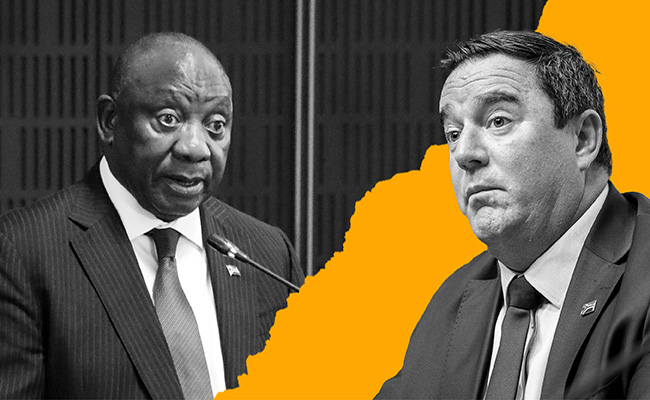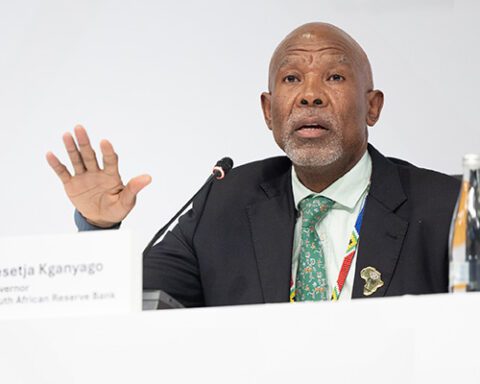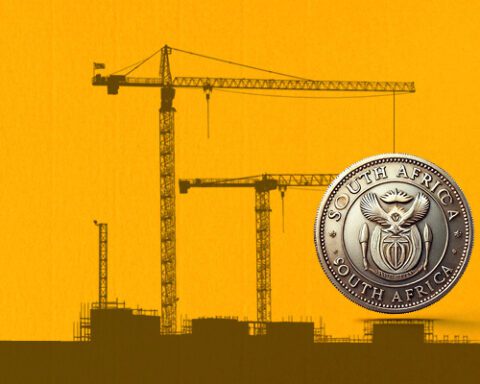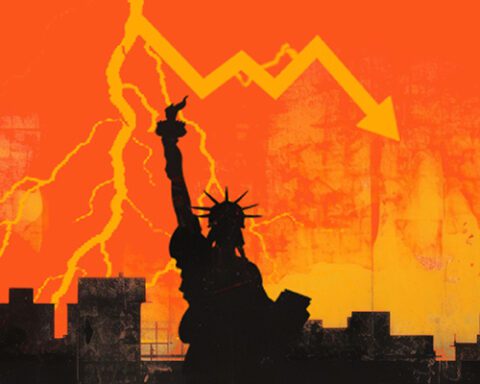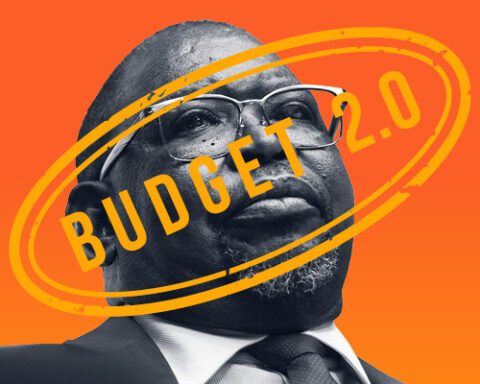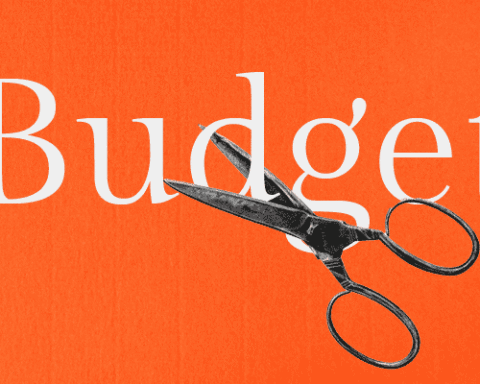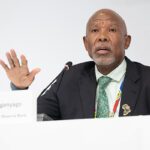With just a week left to reach an agreement on South Africa’s most contested national budget yet, the ANC and the DA are deadlocked, with the Expropriation Act at the centre of the bust-up.
This land reform legislation, signed into law by President Cyril Ramaphosa in January, was lauded by the ANC as a landmark victory. But, it has unleashed a firestorm – not least as Donald Trump’s administration mulls axing South Africa from the African Growth and Opportunity Act (Agoa) programme, entitling it to duty-free access to the American market.
More immediately, however, it risks setting off a chain of events that could yet topple the fragile government of national unity (GNU).
Following finance minister Enoch Godongwana’s revised budget speech on March 12 – after failing to even reach the podium to deliver the original in February – DA leader John Steenhuisen declared that the budget “does not have a majority”, as his party would not support a proposed VAT increase without “a clear commitment to economic reforms”.
But Steenhuisen said Treasury still “has room if they want to actually compromise”, as the fiscal framework will only be tabled on April 2. But with the clock ticking, compromise remains elusive – thanks largely to the Expropriation Act.
In the DA’s negotiating document, titled “A way forward on budget 2025”, which Currency has obtained, the party specified reforms to accelerate economic growth.
Some changes were not hugely controversial, such as launching a tender process by September for concessioning the Cape Town and Richards Bay ports.
Equally, Godogonwana appeared inclined to agree to the DA’s request for a “spending review” – though the DA had wanted this review to “identify a minimum of R100bn across both national and provincial governments” that could be reprioritised.
Line in the sand
Of that R100bn, the DA wanted R30bn to go towards reducing South Africa’s debt, 20% towards reducing personal income tax for the lowest earners, and 50% towards infrastructure spending. This seemed a sensible suggestion, though there would inevitably be horse trading on these numbers, and how this “review” would be constructed.
But the line in the sand for the ANC was the DA’s demands on the Expropriation Act.
In the document, the DA asked for an amendment to “align processes and sequence, to allow the appropriate court to approve compensation before property is taken away from anyone”. Specifically, it wanted all references in the law to “nil compensation” to be changed to “just and equitable compensation”.
Practically, this is a concession which would make little difference, but politically, it would be a huge symbolic blow to the ANC, which had ridden its populist horse all the way to the finish line for this legislation and evidently has no appetite to restart the race.
As one party insider told City Press, an agreement on the budget is close, but “we just cannot allow the DA to start renegotiating laws already accepted by the previous administration”.
The DA seems equally reluctant to budge on this issue.
As one DA insider told Currency: “The ANC refuses to share power. We have made all the compromises – on Black empowerment, the minimum wage, the Basic Education Laws Amendment [Act] – and they have given literally nothing.”
Political opportunism
All the DA wanted, he said, was an “amendment clarifying the Expropriation Act, but this was too much for them”.
In the absence of a compromise with the DA, the ANC has been desperately casting around to find enough votes from someone else – anyone else – to push the budget over the line, as its 40% of parliamentary seats leaves it well short of a majority.
In the past week, the ANC chief whip Mdumiseni Ntuli has sought to woo Julius Malema’s EFF, Jacob Zuma’s MK Party and Herman Mashaba’s ActionSA into voting with it on the budget.
But while there is nothing quite like political opportunism to chill ideology, all of these parties seem distinctly cool on the idea.
Malema was explicit that he could never support a VAT increase (as desperately as he might want to supplant the DA in the coalition government), while ActionSA has said the budget “in its present form would not be something [we] support”.
That narrows the window for a political solution and raises the possibility that Godongwana may be forced back to the drawing board to revise parts of his fiscal framework before the April deadline.
This seems even more likely given the potential political fallout were the ANC to be supported by a party outside the coalition, such as the EFF.
As the budget is a government document, the failure to secure the support of the other political organisations in the unity government may contravene the deal signed in July by the 10 parties. And that would spell the end of the fragile coalition.
Pro-growth reforms
Political analyst and author Ralph Mathekga says that “as a nation, we have never had the budget at the centre of politics in this way”.
The DA, he says, is not wrong to push for a spending review and pro-growth reforms, as “there is a lot of waste that is happening”, but the clash over spending priorities is deeply revealing of where each party is.
The ANC, says Mathekga, realises that politically, it needs to keep spending large amounts on social security to maintain the illusion that it represents the poor.
“The ANC has let it get to this point,” he says. “We cannot shy away from the idea that the ANC wants to continue the status quo of keeping the large majority of the Black constituency subservient to the party through social security.”
But it has got to the point where the economy simply has to grow faster to continue paying an increasing share on social grants. While the ANC has framed social security as a human rights issue, Mathekga says “the right to exist in a situation where there is an enabling environment for job creation” is just as critical for citizens’ wellbeing.
For the first time, he adds, calls for budget reform and a meaningful spending review have “stopped the budget” in its tracks.
It reveals that, after all the headlines of a “new rainbow nation miracle” after the June deal to create the grand coalition, the parties have cleaved back to their ideological positions – and it is these ideological positions which may yet sink the arrangement.
If, as Steenhuisen argues, the ANC didn’t want to recognise that it lost last year’s election, the last few weeks would have been a rude awakening. And, if a compromise over the Expropriation Act is not reached in the next week, South Africa’s political centre could be reshaped for the second time in a year.
Top image: President Cyril Ramaphosa (Picture: Gallo Images/Fani Mahuntsi) and DA leader John Steenhuisen (Picture: Gallo Images/ER Lombard).
Sign up to Currency’s weekly newsletters to receive your own bulletin of weekday news and weekend treats. Register here.
